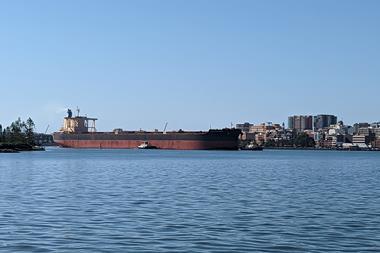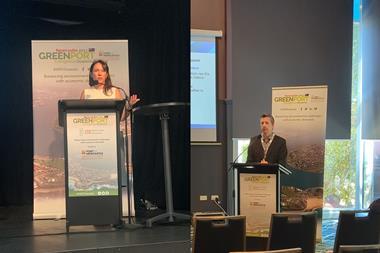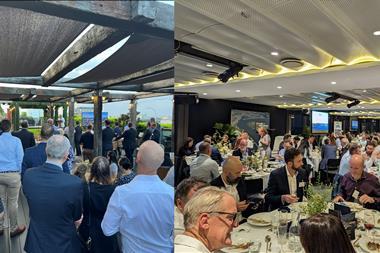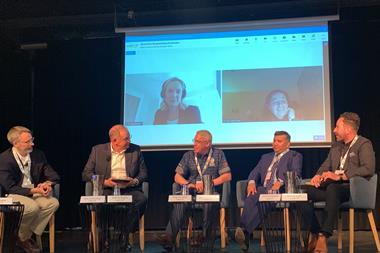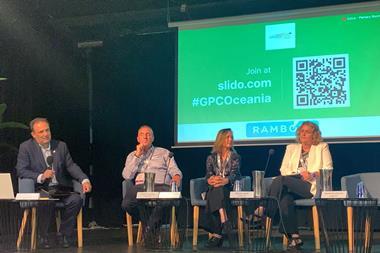Speaking at the GreenPort Congress taking place in Newcastle (Australia), Svitzer Australia’s Ivan Spanjic said the Australian Government and industry partners need to take action to make biofuel a feasible option in the region.
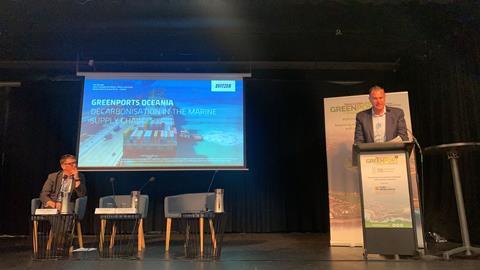
He said carbon-neutral towage operations in the country would not be possible by simply building different kinds of tugboats. “We’re eager to be a foundation customer and are willing to work with the entire supply chain in this important transition opportunity,” he told delegates.
The benefits of green towage operations are numerous and range from assisting port operators to the development of green shipping corridors. While tugboats may account for only 4% of total shipping carbon emissions globally, that’s still around 40 million tonnes of CO2 or the equivalent of seven million cars per year.
With emissions reduction targets in play at many ports around the world and moves towards cleaner energy sources, towage companies could benefit from early adoption, providing low-carbon options at a green premium.
Svitzer, part of Maersk, is one of largest towage services in the world, with vessels operating at 150 ports and terminals including those in Australia and Papua New Guinea. Its Australian operations account for around 280,000 tonners of CO2 annually.
Svitzer is aiming to reduce the CO2 intensity of its entire fleet by 50% by 2030. This will pave the way for fully carbon neutral operations just ten years’ later in 2040, which is in line with Maersk’s ambition. “Twenty-thirty is only seven years’ away,” Mr Spanjic said. “Achieving a 50% reduction in this time is going to be a huge leap”.
“It’s going to require the optimisation of our existing assets, a switch to biofuels and rapid introduction of low or zero emission power sources.” He said the company was “absolutely guaranteed to fail” if it doesn’t “partner for success”.
Svitzer has developed in recent years a number of systems and tools to help it measure and manage its emissions, such as one that monitors tugboat speeds. However, it sees two major challenges ahead the first of which Mr Spanjic refers to as a pending “capex tsunami”, referring to a decline in capital spending for asset owners across numerous industry sectors.
“We see another challenge in Australia’s policies around future fuels and interim fuels,” he said. “At Svitzer we like to think we’re a pragmatic innovator and ideally sustainability needs to be sustainable.”
Svitzer will bring around 180 new tugboats into service by 2040, less than half its global fleet. “The horrible truth is that we’re not going to get there by building, we can’t build our way to a sustainable future,” Mr Spanjic said.
Today’s solution is biofuel but uptake is hampered by gaps in the supply chain in terms of infrastructure, policy and legislation. “Everyone talks about methanol which we also subscribe to, we also talk about batteries, but biofuel is just as effective, it’s just not as well known,” he said.
Mr Spanjic believes Australia has good access to green power and an abundance of potential feedstocks that are largely shipped overseas at present. With access to affordable biofuel and the right regulatory settings, Svitzer has demonstrated its ability to offer carbon-neutral services to port customers.
In eight ports in the United Kingdom the company offers its EcoTow service, using tugboats powered by HVO (hydrotreated vegetable oil), a form of green diesel – performing around 18,000 carbon-neutral tug jobs in 2022 alone.
What’s needed to develop the same market in Australia?
“Partnerships, partnerships, partnerships,” Mr Spanjic said. “We’re all on our own paths to the same destination, a sustainable, low and ultimately zero carbon future.”

